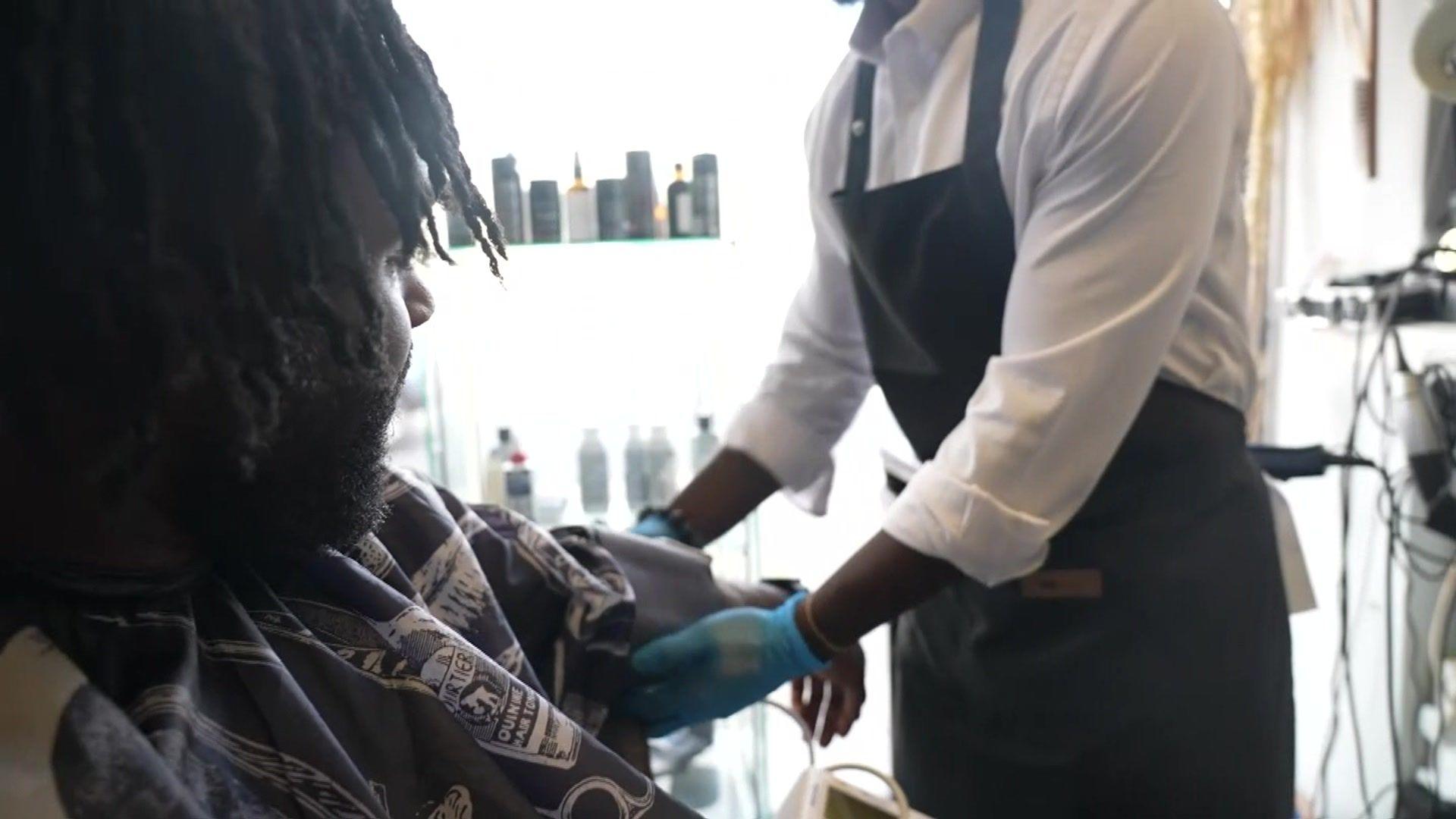Why are people getting ringworm from their barbers?
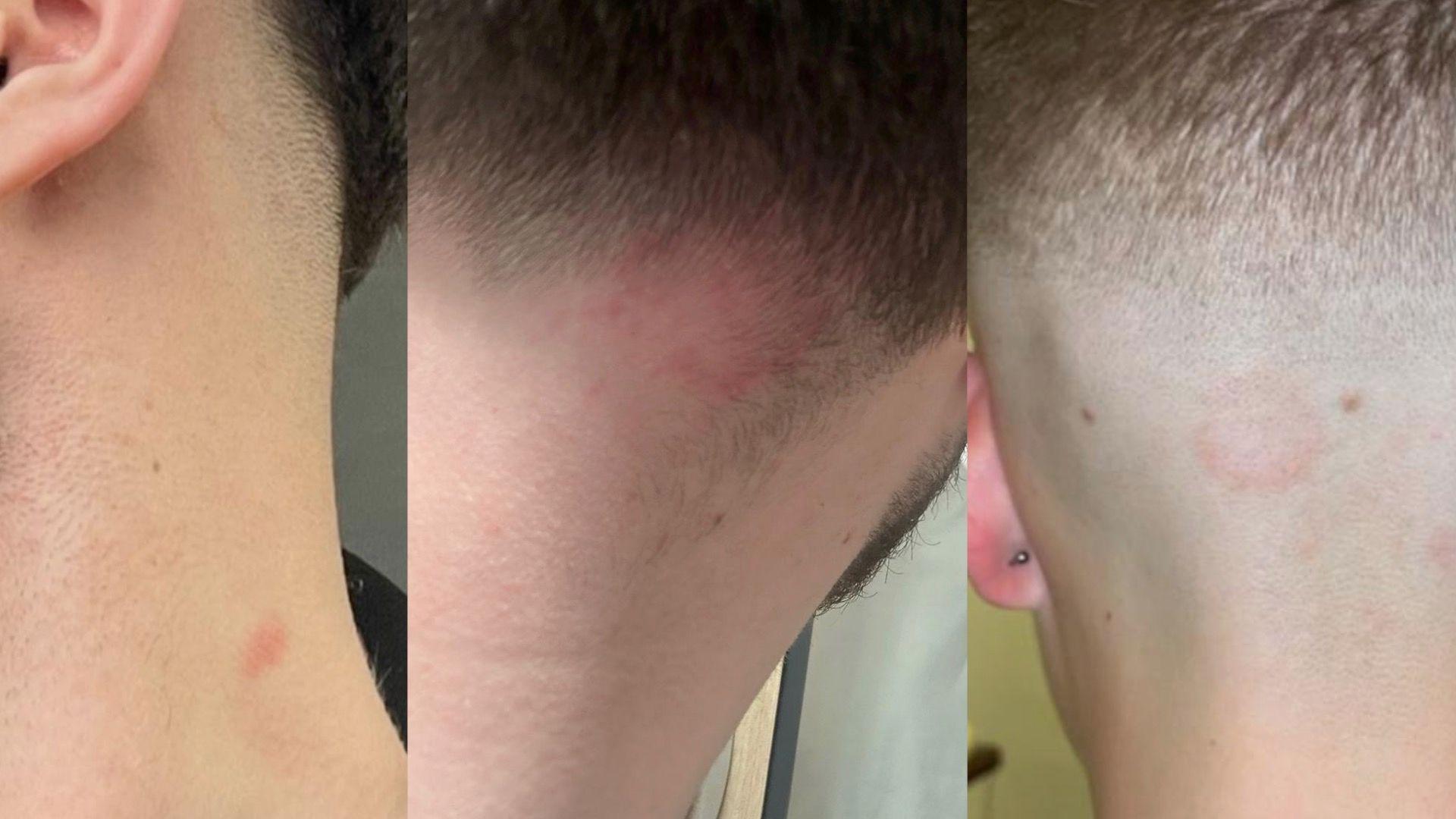
A barber has said he has seen "loads of cases of ringworm"
- Published
A barber has called for higher standards in the hair industry after seeing "loads of cases" of young men catching ringworm from haircuts.
Mike Taylor runs a barbering training academy in Poole, Dorset, and wants the government to take the currently unregulated profession more seriously.
He said customers had been coming to him with skin infections as "cheap, dirty unqualified barbershops are littering the high streets".
The government said it had "no plans to regulate the hairdressing sector".
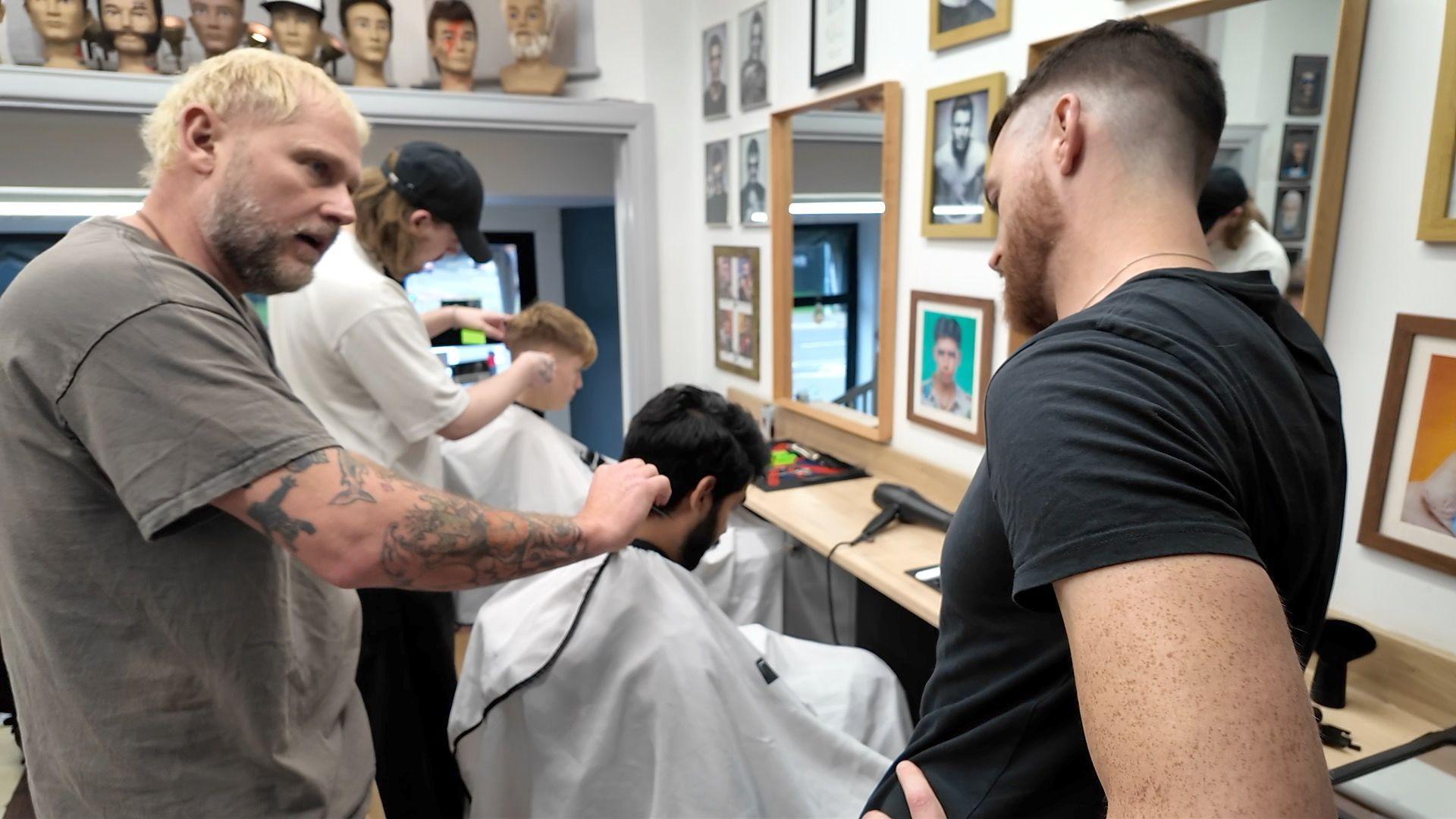
Mike Taylor wants the government to take barbering more seriously
Mr Taylor has worked in the industry for 34 years and believes infections like ringworm and folliculitis are spreading as more men get the popular skin fade style haircut.
He said: "I'd say 70% to 80% of clients coming in ask for skin fades.
"To get that effect you've got to use the foil clipper, but the problem is it takes in hair and it needs to be thoroughly cleaned."
Mr Taylor said it could take five to 10 minutes to properly clean and disinfect the foil razors after each haircut but he does not think that is happening.

James Davis (left) and Christian Reynolds (right) both believe they caught ringworm from a haircut
Christian Reynolds, 22, from Bournemouth, got an infection after getting a skin fade at his local barber.
"Almost immediately after I came out and met up with my partner she noticed this abrasion and raised mark at the back of my neck," he said.
He described it as "itchy" and "irritable" and after speaking with his pharmacy he found out that it was ringworm.
"I felt annoyed because after doing research on it I realised it was due to improper practice and not cleaning equipment properly," Mr Reynolds said.
He added that he felt "let down" by the barbershop.
James Davis is a newly qualified barber from Poole and said cleanliness in the industry was "so important".
The 21-year-old said he caught ringworm after a haircut in April.
He said he managed to stop it early and got treatment to prevent it from spreading.
"You shouldn't have to worry about sanitary stuff but it's quite a big factor in where I get my haircut," he said.
According to the NHS ringworm is a common fungal infection that can be treated with anti-fungal creams but if left untreated can lead to hair loss.
It can be passed on through close contact with an infected person or infected objects, such as bedsheets, combs or towels.
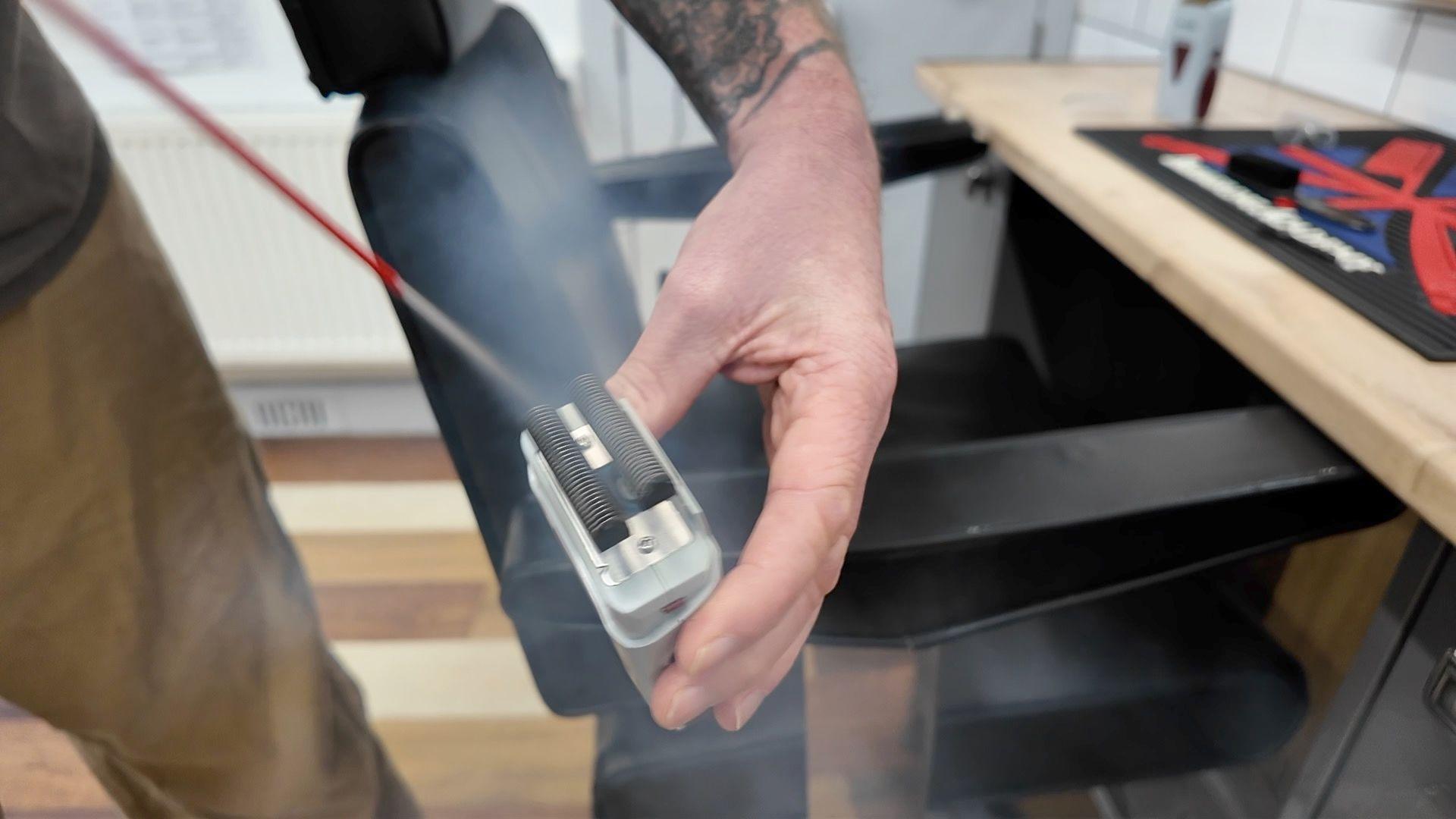
Mr Taylor believes some barbers are not cleaning foil clippers correctly
Reflecting on the changes in the industry since he began working as an apprentice in the 90s, Mr Taylor said: "The high street is depleting, it's dying and then suddenly there's 12 barber shops on the same street and they're all trying to go a little bit cheaper than each other."
"If the prices have to be knocked down then something else has to go and maybe it is all the time spent cleaning the equipment or the time spent getting the proper knowledge."
Mr Taylor wants the government to regulate the industry and has urged the public to be cautious when they go for a haircut.
"Sometimes the cheapest price isn't always the best price," he said.
Gareth Penn, the registrar at the hair and barber council, agreed with Mr Taylor and is calling for a "mandatory register for those who wish to trade as hairdressers or barbers".
The council, based in Hampshire, is a statutory authority for hairdressing in the UK.
Currently it is only a voluntary register and Mr Penn believes this could lead to more than just dirty haircuts.
"This opens up hairdressing and barbering to those that are not trained, or qualified, or worse, those who wish to use our industry as a front for illegal activity," he said.
A government spokesperson said: “We have no plans to regulate the hairdressing sector, however we will always seriously consider evidence when it’s provided.
“We work closely with the industry to address skills and training needs, and HMRC is also working to tackle tax fraud in the sector.”
Get in touch
Do you have a story BBC Dorset should cover?
You can follow BBC Dorset on Facebook, external, X (Twitter), external, or Instagram, external.
More on barbers
- Published25 September 2024
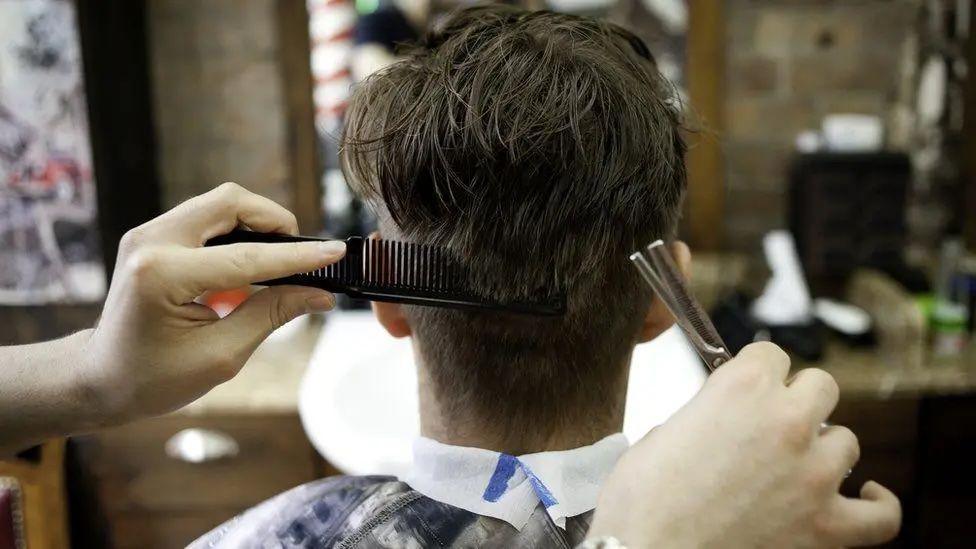
- Published25 August 2024
